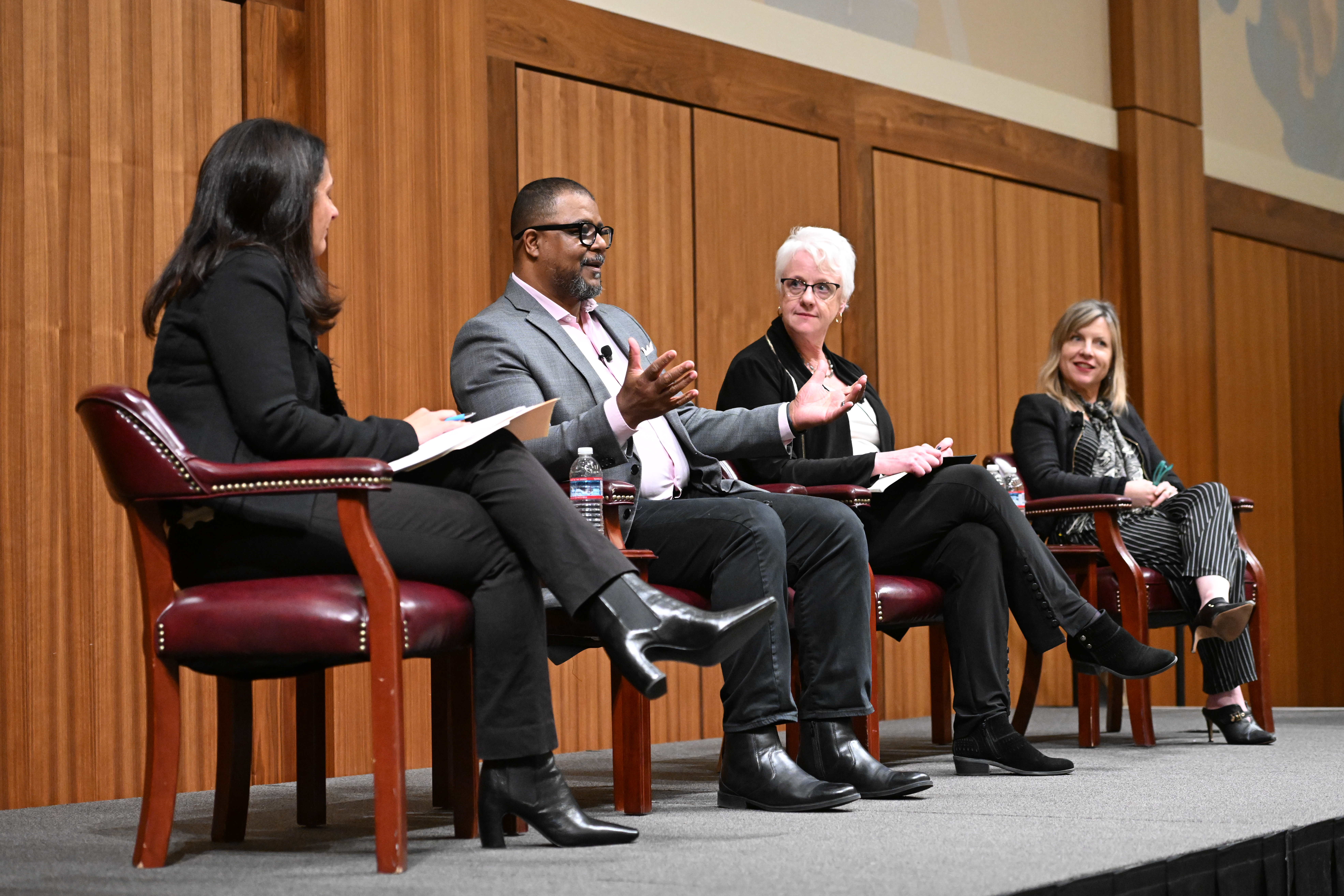In an age when every person can become a journalist by taking their phone out and posting about news on social media, it can be hard to know who and what to trust, said Lee Ann Colacioppo, editor of The Denver Post.
Colacioppo, along with two other editors in chief of local newspapers across the country, came together to discuss how to establish trust with readers amid prevalent misinformation and polarization at a panel in the Traitel Building Monday.
The panel featured Colacioppo; Leroy Chapman Jr., editor in chief of The Atlanta Journal-Constitution and Julie Makinen, the editor in chief of The San Francisco Standard. Stanford lecturer and former journalist Janine Zacharia moderated the event.
The event was part of the Rebele Symposium, a yearly event funded by the Rebele family. This year’s symposium is the first since Rowland Rebele ’51 died last November.
The goal of the panel was to “focus on what the press and mainstream media outlets can do to reduce [polarization],” Zacharia said at the start of the event.
One of the key issues causing polarization is the lack of trust in the press: people don’t feel they know journalists like they used to, Chapman said. Each panelist recounted trying to make connections with their communities as a way to address this issue.
“I’m your neighbor, I have a Toyota,” Chapman said, referring to how he builds these connections with community members in Atlanta. “Having a connection with our community is going to sustain us.”
Local newspapers depend on this connection to function, though not everyone in the community is willing to reciprocate that connection, the panelists said.
“I don’t think everybody is reachable, but I do think there’s a big group in the middle,” Makinen said. She said this group of people tends to read the news and sometimes even reaches out to voice concerns with how their community is being covered.
Panelists also noted how privilege and inequality in journalism often directly impact who gets to tell the story. At the Atlanta Journal-Constitution, Chapman said that while their audience demographic is primarily Black readers, many of their stories are told by white journalists.
Though this could potentially cause issues with coverage, Chapman Jr. said there is a simple solution.
“Hire the best people. The best journalists are at home wherever. The best journalists will earn trust,” he said.
Panelists agreed that journalists can earn the trust needed in communities to tell these stories through transparency.
“Be transparent about mistakes and how they happened,” Colacioppo said.
Transparency is a tricky act to balance, she added, because it could also be interpreted as an admission of guilt or proof as to why a news source should never have been trusted to begin with.
At The Desert Sun in Palm Springs, where Makinen served as executive editor from 2018 to 2023, trust and community was built through the opinions page, she said. Makinen spearheaded an experiment in 2019 to make the opinions page politics-free for a month. The resulting opinions they received were “so interesting,” Makinen said, bringing new contributors to the paper who otherwise might not have written.
Despite the difficulties in creating and maintaining trust in an era of social media and polarization, the panelists said they aren’t discouraged from trying. The work is worth it, Chapman said.
“When we matter, that’s when people trust us,” Colacioppo said.
